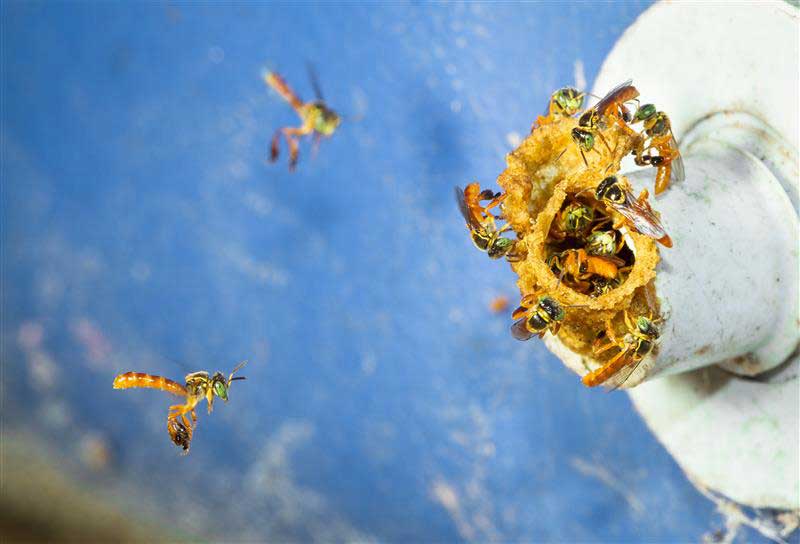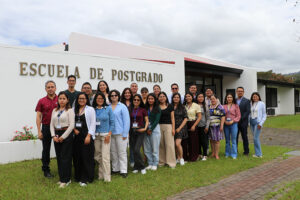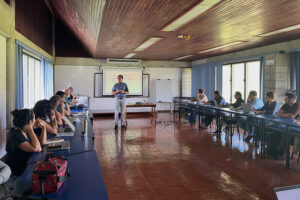We Remain Committed to Bees and Other Pollinators

- Learn about native bees, how to care for them at home, and support local entrepreneurs
For the fifth consecutive year, the Environmental Economics and Sustainable Agribusiness Unit at CATIE (Tropical Agricultural Research and Higher Education Center) reaffirms its commitment to generating, transferring, and sharing knowledge about the importance of bees and other pollinators for people and ecosystems.
This year, we are conducting research on how to diversify the beekeeping products of a Salvadoran cooperative, and we are organizing a commemorative event for World Bee Day, which is celebrated every May 20th but will be held this year on Tuesday, May 27th.
In 2025, our special focus is on melipona or native bees, also known as meliponines, jicotes, or enredapelo. These stingless bees have other defense mechanisms, such as biting.
In Costa Rica, it is estimated that there are more than 50 species of melipona bees, many of which have been used for honey production. Popular belief holds that their honey possesses more medicinal properties than that of the Apis mellifera bee.
Their value in maintaining healthy ecosystems is undeniable, as is their key role in the pollination of plants essential for human and animal nutrition.
Join us in learning more about native bees and, most importantly, how to protect them and harness their pollination potential so that your garden or home orchard can be more productive—and they, in turn, have a healthy place to live.
You will also have the opportunity to purchase products made by local entrepreneurs from Turrialba, directly from the hive to your home.
The responsibility of caring for and conserving bees is everyone’s, and the best way to start is by learning from them.



